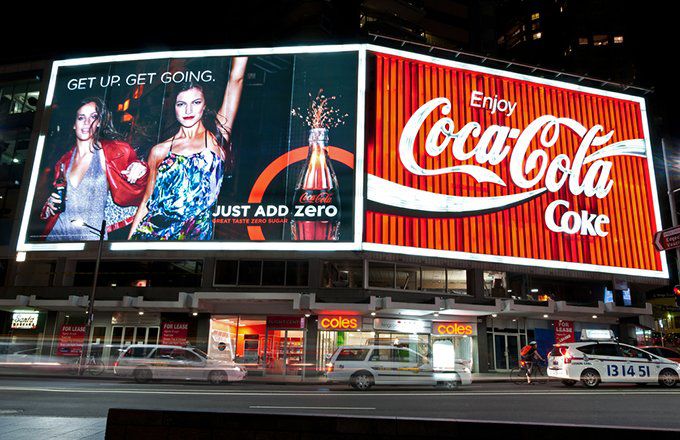[ad_1]
Many of the Coca-Cola Company’s (NYSE: KO) recent brands are the result of merger and acquisition deals, representing a departure from the company’s traditional method of developing product lines in-house. But by purchasing well-established respected brands, Coca-Cola has successfully capitalized on the growing consumer trend towards favoring healthy sports drinks and nutritional energy drinks, over traditional sugary soft drinks.
Key Takeaways [PLEASE FORMAT THIS INTO PROPER CALL OUT BOX]
–In a bid to expand into the non-carbonated beverage space, the Coca-Cola Company’s has made many meaningful acquisitions of other non-soft drink beverage purveyors.
–Some of Coca-Cola’s marquis acquisition deals involve the purchase of the following companies: Monster Beverages, FUZE Beverages, Vitamin Water, and Minute Maid Brands.
–Coca-Cola enjoys a hefty revenue stream from Bottlers Investment Group, an entity dedicated to increasing its global distribution system through independent bottlers.
Monster Beverages
Coca-Cola owns 16.7% of the Monster Beverage Corporation (MNST), which it purchased in 2015, for approximately $2.15 billion. As part of a strategic partnership, both companies aim to expand their collective global distribution. Case in point: Coca-Cola transferred ownership of all of its worldwide energy businesses, including NOS Energy Drink, Full Throttle, and nine smaller brands, to Monster, which in turn transferred all of its non-energy drink businesses to Coca-Cola, including Hansen’s natural sodas, Peace Tea, Hubert’s Lemonade, and Hansen’s juice products.
Coca-Cola’s global distribution infrastructure, coupled with Monster’s popular products, is expected to substantially increase energy drink revenues, resulting from new international distribution agreements. With Monster’s stock price steadily hovering in the high 50s for the last several years, some analysts speculate that a full takeover is likely to occur.
FUZE Beverages
In the year 2000, entrepreneur Lance Collins founded juice and tea maker FUZE beverages in his basement. By 2005, the company was shipping eight million cases of vitamin and mineral-enriched juices and teas. Two years later, Coca-Cola purchased FUZE for $250 million, since which time FUZE has expanded internationally, to currently offer more than 30 different drink varieties.
Vitamin Water
In 2007, Coca-Cola acquired Glaceau, the maker of Vitamin Water, for a cool $4.2 billion, in its continuing bid to increase its footprint in the non-carbonated beverage space. Vitamin Water has since been touted as one of Coca-Cola’s best purchases, and is currently available in over 26 countries.
Minute Maid Brands
Not all of Coca-Cola’s acquisitions are recent. In fact, some reach back more than 50 years. For example, in 1960, Coca-Cola first ventured beyond soft drink category by acquiring Minute Maid, a market leader in frozen concentrate drinks. While Minute Maid faces stiff competition from PepsiCo-owned Tropicana, this billion-dollar brand has helped Coca-Cola cater to consumer demand for healthier drink options.
In 2001, Minute Maid launched its Simply brand, which offers lemonade, apple juice, grapefruit juice, and orange juice products, which have contributed more than a billion dollars to Coca-Cola’s bottom line.
Bottlers Investment Group
One of the most valuable elements of Coca-Cola’s unique business model is its global distribution system through independent bottlers. In an effort to bolster its financial strength and stabilize its operational infrastructure, Coca-Cola has sought to consolidate the bottling subsidiaries within its distribution network, which consists of more than 250 independent bottlers, who collectively employ over 45,000 workers.
Periodically, some of these bottlers have encountered financial troubles or struggled with regional market conditions. In January of 2006, Coca-Cola created Bottlers Investment Group, for the purpose of purchasing and rehabilitating struggling bottlers, to then re-sell for profit. The group initially acquired troubled bottlers located across seven countries. Today, the group manages bottling operations in 19 markets that represent more than 25% of the total system volume.
[Important: While Coca-Cola’s Bottlers Investment Group strives to find suitable buyers for its bottlers subsidiaries, the group remains one of the company’s largest assets.]
[ad_2]
Source link Google News

